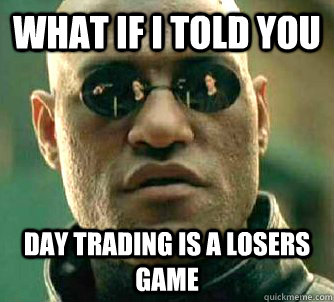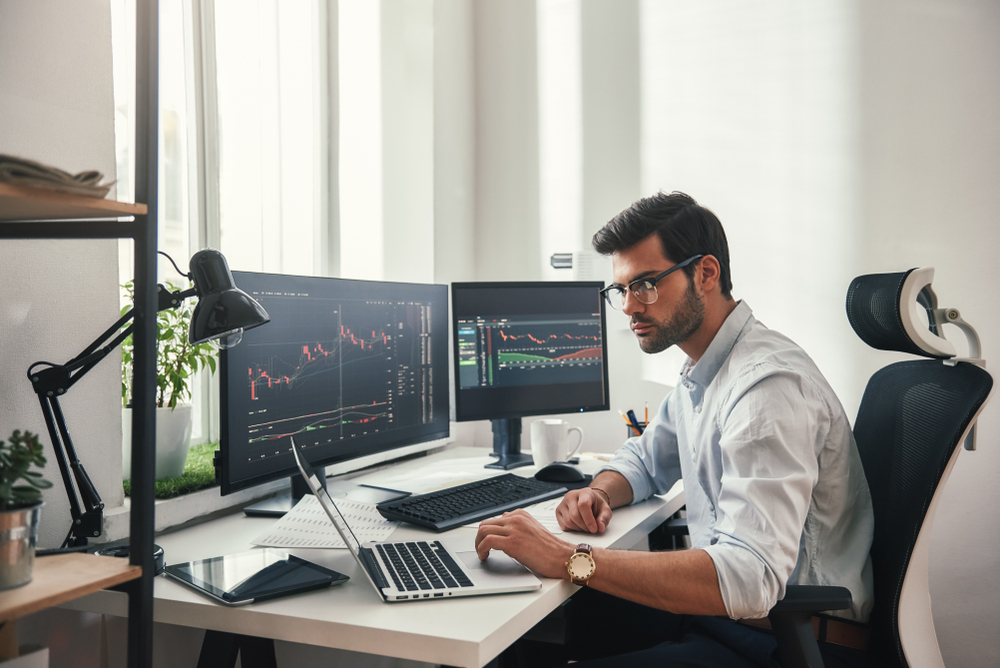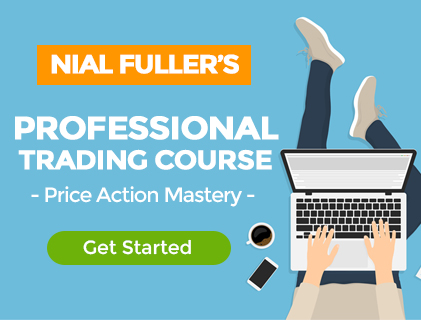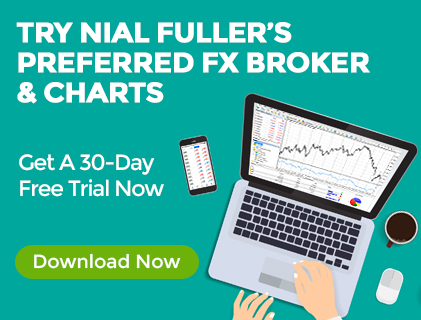
Today’s lesson is going to be somewhat controversial and may ruffle some feathers. I intend to blow wide open and debunk a lot of the information you have most likely been exposed to this far in your trading journey.
The average trader is out there walking through a confusing and conflicting maze of information from a variety of sources including; blogs, forums, broker websites, books, e-books, courses and YouTube videos.
With all these learning resources available there is naturally going to be some very good and some very bad information, but in reality, there just isn’t a way for most aspiring traders to know what to listen to, who to listen to, or what information is beneficial and what information is non-beneficial.
I’m not going to pretend that there is a way for an aspiring trader to filter this giant sea of information composed by all these resources and mentors out there, because there simply isn’t. A professional trader with 10,000 hours of experience might stand a chance of figuring out the good from the bad and the valid from the invalid. However, you, the beginner or intermediate trader simply won’t possess that filtering ability yet.
Becoming ‘Non-Average’
As traders, we give in to our instinctive feelings of social trustworthiness based on what we see and hear, often to our extreme detriment. We often tend to take a leap of faith with our mentors and have a habit of taking things said to us at face value. We want to cling to information that resonates with us and makes sense to us, especially if it’s delivered by a familiar source that we have come to know and trust.
The ‘average trader’s brain’ is always looking for a shortcut because of the overwhelming desire to make money and be free. The brain wants to get a winning result right now with the least amount of effort possible. If you want to ever make it as a pro trader or investor, I suggest you do everything you can to avoid thinking with the ‘average trader’s brain‘ and start being ‘non-average’. That means becoming much more aware, thinking outside the box more and questioning and filtering the information you read and watch. Most importantly, slowing everything all down!
This now begs the obvious question…how do you even know what I’m about to write in this lesson is truly valid and factual? How can you really be sure? The truth is unless you have followed me and my posts on this blog for a long time and know me and know my work, then you can’t really be sure, and I don’t expect you to simply believe it at face value. If you need to come back and re-read this lesson in a few weeks, or a few months, or a few years, after you figure out that I am somebody worth listening to about trading OR that I am somebody not worth listening to about trading, then so be it.
So with a degree of healthy skepticism, I ask you to consider the below list of eye-opening secrets that pro traders and the trading industry, don’t want you to know about or understand. I hope it helps…
FOREX isn’t the only market the Professionals trade
The FX market is huge, with billions of dollars per day changing hands. It can make you great money if you know what you’re doing OR it can send you broke if you don’t. It’s a very popular market to trade globally, BUT it’s not the only market the professional’s trade and it’s not always the easiest market to trade either.
A note on leverage:
The brokers and platform providers want you to trade FX on high leverage because the profit margins are very high for them. However, if you trade FX on lower leverage, the profit margins shrink dramatically for them. When you trade FX, start thinking about what can go wrong instead of just thinking about what can go right. I suggest avoiding stupidly high leverage like 400 to 1, as this can be very dangerous for you if the market moves quickly or experiences a price gap and your stop-loss orders aren’t executed at the price you set. A more sensible leverage level would be 100 to 1 or 200 to 1, but any higher seems crazy. (Using too much leverage is what wiped a lot of traders out during the Swiss Bank Crisis in 2015, The Brexit vote in 2016 and the Currency flash crash in early 2019).
Broaden your view:
Going forward, it will serve you well in your trading career to start watching a variety of global markets including FX, Stock Indicies and Commodities. In addition to FX, I personally trade GOLD (XAUUSD), S&P500 Index USA, the SPI200 Index Australia, and the Hang Seng Index Hong Kong, and sometimes individual stocks on various global exchanges. In short, there is more to the trading world than just FX. I discuss the most popular markets I trade in this lesson here.
Day trading isn’t what Pro trading really is

The internet is filled with marketing trying to convince people that the definition of a trader is a person who spends all day actively trading in and out of the market on a short term basis, all whilst living the lifestyle of a Wall St millionaire. There is a serious agenda in the industry to push this story to the masses, it has been relentless for decades.
I am yet to meet one successful day trader who is consistent over the long term and I have almost 25,000 students and 250,000 readers on this blog. I am not saying there isn’t a few out there, but 99.9% of the people who try this style of trading or try to live up to the typical day trader stereotype are going to fail and maybe even harm themselves financially or mentally. Watching a screen all day and looking for trades constantly is the equivalent to a compulsive gambler playing roulette in a casino.
The successful traders I know of (myself included) are looking at higher time frames and longer time horizons (minimum 4-hour chart timeframes and predominantly daily chart time frames). They have no restriction on how long they are looking to hold a trade for and they tend to let the trades find them. The professionals I know, do not day trade, they do not watch screens all day, they do not look for trades constantly. They will typically fall into the category of a swing trader, trend trader or position trader.
The obvious paradox and conflicting reality in the ‘day trader story’ is blatantly obvious. How does a trader who is constantly looking at a screen and constantly trading have time to enjoy his life and live the lifestyle? They chose to trade as a profession to have a life, they didn’t choose it to watch a screen 24/5.
Here are some points to consider that work against the so-called ‘ day trader’:
- The shorter the time frame the more noise and random price movement there is, thus increasing your chance of simply being stopped out of the trade.
- Your ‘trading edge’ has a higher chance of yielding a result for you if you’re not trading within the intraday noise.
- The same trading edge does not work or produce the same results on a 5 min chart compared to a Daily chart.
- Commissions and spreads churn your account, so the more you trade the more you lose in broker platform costs. (I will talk about this below)
- Risk-Reward ratios are not relative on shorter and longer time frames. Statistical average volatility across different time periods as well as natural market dynamics play a huge role in this. There is far more weight behind higher time frames than lower timeframes.
- Great trades take time because the market moves slower than most people ever anticipate. Trading from the higher timeframes and holding trades for longer time periods will offer you greater opportunities to see trades mature into big winners. However, shorter timeframes don’t offer you this same opportunity very often.
Commissions, Spreads & Swaps eat into your profits
I briefly touched on the hidden costs of trading above. It’s not always obvious to the beginner trader that for every 100 trades they make, they will spend around 70 to 100 pips equivalent costs via the broker’s price spread, commission and overnight swap. If you’re day trading, this is going to add up extremely quickly and eat into your account (the industry word for this is ‘churn’). Every second lesson I seem to write on this blog is about the benefits of trading less frequently, trading daily time frames, slowing it all down, letting trades take time to play out. One of my best lessons on trading daily time frames can be found here.
There is no such thing as an ECN broker for retail traders
There is a serious epidemic of absolute B.S marketing by brokers who call themselves an ‘ECN broker’ or a ‘True ECN’, and try to make out they are ‘more legitimate’ or ‘more transparent’ than their competitor brokers. I hear about ECNs multiple times per day on our email support line and my response is very frank when I try to explain the reality of what’s really going on here.
Let me explain the truth about ECN Broker Accounts…
ECN is an industry term originally coined by banks and institutions which really just means ‘Electronic Communication Network’. It implies your order from the broker is sent directly to the market with no middle man and no market making activity by the broker. However, the truth is that 99.9% of all brokers and platforms are market makers and they are not always sending your trades through to a bank or liquidity provider at all.
The forex market is not like the stock market, there is no central exchange where one trader’s order is matched with another traders order, the prices in FX are ‘market made OTC products’. These products and prices are created by banks, institutions and brokers. With FX and CFDs, even when trading with a so-called ECN broker, there is still no central exchange and no real transparency.
Undeniable Proof:
Recently one of the largest brokers in the world who claimed to be a ‘True ECN’, suddenly removed this wording from their website and no longer claims to be an ECN broker! Rumour has it the broker was forced to remove this wording on their website by various global regulators for misleading customers. I had actually been warning our members about this broker for years and I always struggled to convince people it was just very clever marketing. All along these ECN brokers have still been market-making part of the order flow coming from clients and have not always sent every trade through to the banks or liquidity providers.
Even if ‘magically’ they did send every trades through to the banks or liquidity providers, you still don’t really know what’s on the other side. There is ALWAYS an institution or company making a market (settings the prices you trade on). The price is never the same across all banks and brokers. There is no central exchange to compare prices or dispute prices either.
In short, do not rate a broker higher just because they use words like ECN, STP or DMA. There are very reputable brokers out there for sure, but don’t be naive or fooled by clever marketing and choose one because of a story they are peddling you. A bank or broker somewhere is always taking the other side of the trade when it’s an OTC market, there is no exceptions to this.
It’s best you decide on a broker based on things like regulatory conditions, global presence, payment and banking conditions, customer service, and overall reputation in the industry.
Market Makers are not always a bad thing, and we need them too
A bank, an institution, a broker, or a liquidity pricing provider are the counter parties that take the other side of the trade when it’s an ‘OTC market’ such as FX and CFD’s. Did you know that Banks are ARE market makers too? It’s amazing how much respect and credit is given to Banks, as they are really just very large brokers at the end of the day. There is nothing wrong with reputable FX brokers who make a market and don’t send every trade through to a bank. Think about that for a moment… We seem to judge brokers for being market makers, yet if they send your trade through to a bank or large institution, they are just sending it through to a market maker!
This is actually a massive misconception. In fact, what you don’t know is that you will often get a better price and better experience with this kind of provider. This is assuming the broker is reputable, has international offices and a global client base (regulated), and upon your own testing is offering good order execution and good trading conditions.
Other benefits of Market Makers:
- You can trade very small lot sizes, whereas you can’t if going direct to the banks.
- You will often get tighter/better spreads.
- You will often experience better order execution and speed of execution (better fill price on orders)
- You can often access a broader range of markets including Cash CFD’s as apposed to just Futures CFD’s. (overnight swap vs monthly swap)
- The broker is often taking less risk by making a market, there is actually more costs and way more balance sheet risk sending every trade through to banks. This is actually why some retail brokers survived the Swiss Bank crisis in 2015 and some didn’t, it came down to the brokerage model they had been operating.
A Quick Note On The FX Broker Platform We Use:
We currently work with an Australian regulated and reputable global broker offering FX, CFD’s, Metals & Commodities. More importantly, they also offer the correct charts that myself and members use to trade the price action strategies I teach in our courses (ie: New York Close Charts). You can test drive this FX Broker Platform Here. (this will save you emailing me asking for the link).
Trading is simple, BUT it’s really not easy

If you actually think that trading is a get rich quick scheme then you should probably leave this blog now and never return. If you believe in hard work, ongoing study, and learning through life experience and the school of hard knocks, then stick around and read on.
Finding and placing trades is actually a pretty simple process once you have a trading plan in place and have mastered your trading strategy, BUT it’s NOT in any way an ‘easy’ activity to manage on a day to day basis. Humans didn’t evolve to sit in front of screens and look at price bars and bet money on those prices bars moving up or down. In reality, it’s probably the furthest thing from what humans were designed to do.
Our mind struggles with the emotional roller coaster that inevitably holds us ransom on almost every price tick, every trade entry or exit, and every trading decision we make. Unless we learn to master this emotion and implement sickening military-grade discipline, we are pretty much screwed as traders or investors. Even after 10 years or 20 years in the trenches, trading nor a professional sports game will ever be an easy experience for the average human being.
The game can be simple, but doing it is never ‘easy’. As with anything that makes serious money or produces a life-changing result, trading is not going to be smooth sailing and there are barriers to entry, both mentally and financially.
Trading robots and EAs don’t usually work
After almost 18 years of trading, I am yet to see a single EA (expert advisor robot for MetaTrader) or automated trading system make money consistently. Automated trading systems and robots on retail trading platforms very rarely work for a long period of time. This isn’t an opinion it’s just the industry statistics. They say only 5 to 10% of traders succeed, and with robots/systems, it’s an even lower % that succeed. Sadly some of the most popular trading robots/EA’s are using terrible money management techniques (some even use martingale, doubling up on positions when they lose), which ultimately leads to a massive drawdown for the trading account when the system experiences a string of losses.
The snake oil sales techniques with automated robots/EA’s are by far some of the worst kinds of marketing every seen on the internet. We are talking blatant scammy stuff, total lies, total b.s. Sure, some robots/EA’s do make money and there will always be a few that do, but the chances are your not trading the one that’s been programmed by a NASA scientist geek, because that NASA scientist geek is not going to give away a robot that makes automatic money. EAs are a broker’s favourite tool because they turn over a clients account constantly, increasing the trading commission and spread revenue, far beyond any other type of client. Remember, every 100 trades is 70 to 100 pips or so in costs, it adds up fast.
One more thing here, don’t ever send your money to a broker or person who wants to trade and EA or automated system for you, you won’t get your money back 99% of the time. If you’re going to ever operate an EA, always maintain full control and watch it like a hawk.
Beware of those selling you ‘shortcuts’
Many trading courses, systems and strategies are marketed to aspiring traders claiming to be able to teach them to print money, quit their job and change their life. With the popularity of Instagram, Facebook and other social media channels, this marketing tactic is becoming a more prevalent and more effective tactic to lure in traders and take advantage of their inner greed and the brain’s obsessive desire to find the shortcut to get a result (mentioned earlier).
When I was younger and naive, I fell victim to these traps as well, so don’t beat yourself up too much if this has happened to you already. It’s important you do not trust anybody who promises you any kind of financial results or returns, if they do, run in the other direction. It’s a genuine minefield out there and sometimes you won’t be lucky enough to come out the other side of an experience like that intact. Some of the stories I hear about traders spending huge amounts of money with ‘so-called experts’ both buying courses and investing in managed accounts with these traders (all the bolt-on upsell offers), are both terrifying and outright sad. Don’t get suckered into it!
Sure I understand you’re probably thinking right now “Hey Nial don’t you sell a trading course?’, and my answer is yes I do and no I’m definitely not able to escape the stigma of selling something, but in a capitalist world I simply have to charge something for all the time I spend composing education materials, writing daily newsletters and answering all your emails each day :). The key difference here is that I don’t engage in deceptive and hype marketing tactics, and I don’t make any financial promises or try to deceive people about the realities of trading.
If you’re going to find a mentor or information resource, you need to be very selective and should filter people based on how much they will do for you for free as opposed to what they promise to do for money later. I actually started this trading blog back in 2008 purely as a passion project to share my ideas and meet other traders. I never intended to charge for anything (which is why a lot of the information is still available for free to everyone). It’s always been my hope that myself and this blog will offer aspiring traders like you the right balance of free and paid information, as well as add genuine value to your life.
Even the best mentors are not enough
You are here to learn about trading from a professional trader, so it may disappoint you to hear from me the candid truth that I, nor any trading mentor or course has the ability to make you a consistently profitable trader and change your life. Even if I armed you with the best trading strategy known to man, and even if I proved it worked 7 times out of 10, it’s simply not going to be enough. This kind of thinking is a pipe dream, it’s completely unrealistic and if you are still thinking like this after reading a few books and courses and after experiencing real-world trading on a live account, you need to get your head checked.
If you have been into trading for some time and have purchased courses or books, you probably know by now that these products/services (Including mine) can indeed help you immensely by fast-tracking your trading knowledge and skillset, but they are not going to be enough in their own right to magically turn you into a consistent trader.
The missing ingredient here is real-world experience in front of the screens over a long period of time (let me reiterate the word ‘long’ here). Trading experience and the intuition/gut feelings that come with it can’t be purchased, it’s simply something you have to live through in real-time and experience for yourself. They say 10,000 hours trading experience and you will be an expert, and I don’t disagree with that.
The cost of education is irrelevant
It’s important to note that a higher-priced education vs lower-priced education in any field has absolutely no bearing on the quality of the information or the credibility of the person teaching the information. As of 2019, we have almost 25,000 students here at LTTTM, all who have paid just a few hundred dollars for our professional trading course, many of whom tell us this is the best course they have taken, as well as being the cheapest. I myself have read $10 books from amazon that are some of the most superior sources of trading and investing knowledge on the planet (we are talking life-changing aha moments). So as you can see, good sources of knowledge are not always expensive.
The majority of the self-made rich and elite in this world didn’t attend or finish university, they didn’t pay huge sums for a fancy degree. They developed a hunger for success and a hunger for knowledge, and once you develop this ‘bug’, nothing can stop you. With Google, access to books and affordable courses all over the internet, you are in the BEST period in the world’s history to start learning about business, investing and trading. No degree or training course that costs an arm and a leg is ever going to teach you what the real-world experience can teach you, and in a much shorter space of time too.
For the rest of your trading career, don’t ever think or believe that by paying more you’re getting more. As I said above earlier, I regularly hear stories from our followers and members about how they have spent huge sums of money attending courses, seminars, buying software and or investing in the educators managed account service. These are situations where the trader literally ends up spending so much money that they don’t end up having enough money left over to ever start to grow a live trading account. They have effectively finished before they have even started. In my mind, it would have been better to use all that money to invest in your own live trading account, at least you have a chance at making money and also learning something tangible along the way. Better in your pocket than somebody else’s!.
Conclusion
I trust this frank article on various aspects of the trading industry has caused you to sit up and pay more attention to what’s really going on around you. It’s my hope that from here onward you to open your eyes and your mind to the possibility that not everything is as it seems and what you’re listening to out there may not be valid information. The internet is a sea of opinions, it’s a place where people retell stories and re-share ideas that are not even actually their own ideas and aren’t backed up by real-world experience or research.
What I want you to do is develop your own ways of filtering information and filtering information resources as best you can, and if in doubt, do a bit more research and think a little deeper about the topic at hand.
Find mentors and resources you can trust and rely on, reach out and pick their brains for help if you need it. Just know that at some point, you will have to take a leap of faith and decide what person/mentor or information resource you want to trust as a source. My advice is to keep the number of sources to a few, otherwise, you may find yourself in a loop of analysis paralysis and frustration, and god forbid, even paranoia. If you don’t get the results you’re looking for with these sources after a long term commitment, then move on and try another, but don’t keep chopping and changing constantly.
When there is an extreme capitalistic bias and an agenda to take your money, you must be explicitly aware that you’re going to be the constant victim of an industry who is lobbying to maintain a ‘consensus’ idea of what trading is, and how a trader should think and act.
You now know from reading the above ‘secrets’ I shared, that what the trading industry tells you trading is and how it works is not always accurate. To survive, you need to be smarter than the industry and you need to stay open-minded.
In future articles, I will expand on some of the individual topics that I have introduced above. So stay tuned.
What opened your eyes in today’s article? What did you agree with or disagree with? (Be nice). What secrets did I miss discussing that you think traders need to be aware of? Leave your thoughts in the comment section below.
Good Trading,
Nial Fuller
If You Have Any Questions, Please Contact Me Here.



